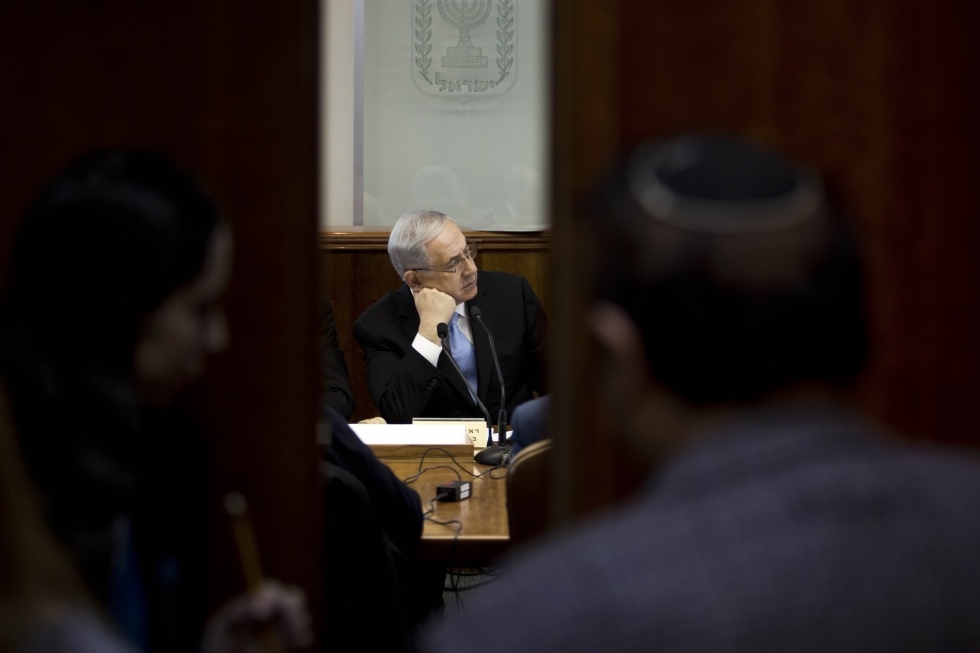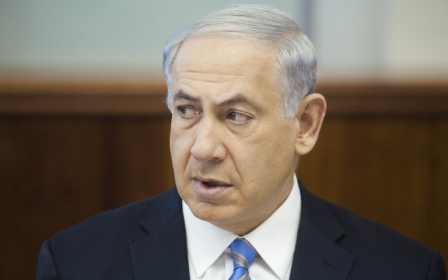Israeli diplomats recalled over tweets criticising PM

The Israeli ambassador to Switzerland and a diplomat in India have been called home over comments critical of Prime Minister Benjamin Netanyahu, the foreign ministry said Thursday.
Among the alleged infractions was a re-tweet by Ambassador Yigal Caspi, citing criticism of Netanyahu's accepting a controversial invitation to address the US Congress over Iran's nuclear policy.
"Every time one thinks Netanyahu has taken the relationship with the White House to the lowest point ever, he manages to take it even lower," said one tweet by Haaretz newspaper writer Barak Ravid, reposted on Caspi's private Twitter account before it was closed.
Foreign ministry spokesman Emmanuel Nachshon told AFP that Caspi and Assaf Moran, political counsellor at the embassy in New Delhi, had been called home.
"They have been summoned to a hearing in order to check the comments attributed to them on their Twitter accounts."
Neither man's Twitter account was functioning Thursday, but news site NRG said Moran had re-tweeted a comment from blogger Moshe Gaon saying Netanyahu's policy was "to do anything rather than talk about social issues."
Meanwhile, the Jerusalem Post said foreign ministry political researcher Yaron Bamburg, formerly spokesman at the embassy in Paris, tweeted that Jewish Home party leader Naftali Bennet was, among other things, "delusional, messianic, violent and homophobic."
Former foreign ministry director-general Alon Liel said that for a diplomat of any country to publicly criticise government policy was a grave offence.
"I think it's an international norm that a diplomat representing his country doesn't publicly contradict its foreign policy," he told public radio, adding that senior diplomats had resigned over the past year feeling unable to support government policy.
"I think that what the ambassador to Switzerland did was (also) virtually an act of resignation; he knew exactly what the consequences would be," said Liel, who described himself as a 40-year-long friend of Caspi.
The invitation for Netanyahu to speak on Iran's nuclear programme came from House Speaker John Boehner, a Republican and prominent adversary of US President Barack Obama.
In a radical departure from protocol it was not coordinated with the White House. It also comes two weeks before Netanyahu fights to keep his job in an Israeli general election.
Haaretz reported Thursday that several Israeli consuls general in the United States had forecast fierce opposition to the speech, including from US Jewish communities and non-Jewish backers of Israel.
"The speech is seen by them as sticking a finger in the eye of the president and the administration," the newspaper quoted Israel’s consul general in Philadelphia, Yaron Sideman, as writing in a diplomatic cable.
Meanwhile, Haaretz has revealed that Netanyahu’s office had ordered employees from the information and communications technology department to monitor the Israeli media for any stories on Netanyahu and his family.
New MEE newsletter: Jerusalem Dispatch
Sign up to get the latest insights and analysis on Israel-Palestine, alongside Turkey Unpacked and other MEE newsletters
Middle East Eye delivers independent and unrivalled coverage and analysis of the Middle East, North Africa and beyond. To learn more about republishing this content and the associated fees, please fill out this form. More about MEE can be found here.




